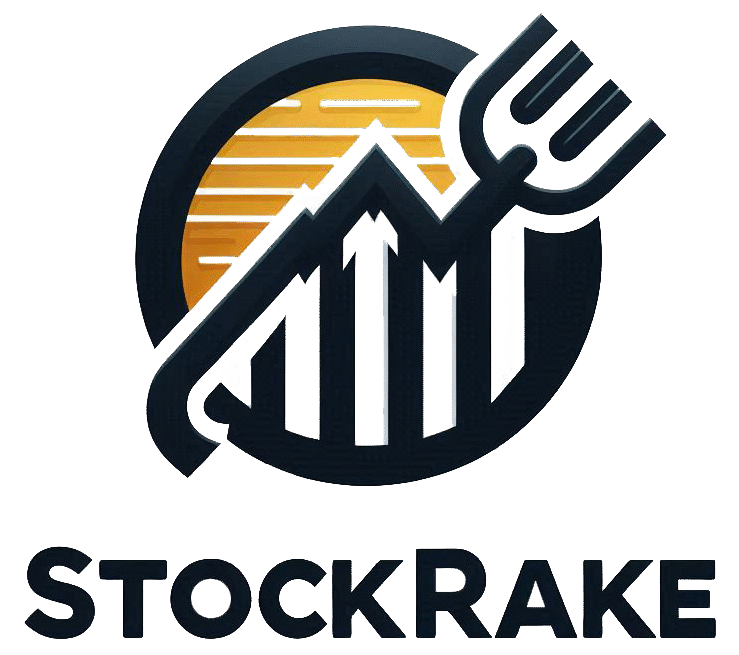When the economy slows down, fear often takes over the stock market. Investors rush to sell, prices drop, and headlines scream “recession.” Yet, history shows that certain stocks hold their ground—or even thrive—during downturns.
Back in early 2020, as the COVID-19 pandemic shook global markets, the S&P 500 plummeted. Out of 500 major U.S. companies, only 32 actually rose in value during that quarter. Those rare winners revealed a crucial truth: some sectors remain resilient when others fall apart.
Fast forward to 2025. While inflation, geopolitical tensions, and shifting interest rates continue to rattle the markets, understanding which stocks tend to outperform in recessions can help you invest confidently rather than react emotionally.
In this guide, we’ll explore:
- The top-performing stocks from the last major market downturn
- Why some sectors stay strong during recessions
- What to look for in “recession-proof” stocks today
- Actionable tips for building a resilient portfolio
- Expert FAQs to help you invest smarter
Top 10 S&P 500 Stocks During the 2020 Downturn
When COVID-19 hit in early 2020, most industries struggled—but not all. Here were the 10 best-performing S&P 500 stocks in Q1 2020:
| Company | Total Return (Q1 2020) | Industry |
|---|---|---|
| Regeneron Pharmaceuticals (REGN) | +30.04% | Health Care |
| Citrix Systems (CTXS) | +28.02% | Information Technology |
| NortonLifeLock (NLOK) | +25.38% | Information Technology |
| Digital Realty Trust (DLR) | +17.02% | Real Estate |
| Gilead Sciences (GILD) | +16.19% | Health Care |
| Netflix (NFLX) | +16.05% | Communication Services |
| Clorox (CLX) | +13.60% | Consumer Staples |
| SBA Communications (SBAC) | +12.22% | Real Estate |
| MSCI Inc. (MSCI) | +12.16% | Financials |
| NVIDIA (NVDA) | +12.10% | Information Technology |
These winners didn’t just get lucky—they reflected strong business models built on consistent demand, innovation, or essential services.

Also Read: What Is the 50/30/20 Rule and Does It Still Work?
Why These Stocks Performed So Well
Each of these sectors tells a story about how certain industries stay stable when the economy turns south.

1. Healthcare: Demand That Never Disappears
When people get sick, they don’t wait for better economic times to seek treatment. That’s what makes healthcare one of the most reliable sectors during recessions.
Example:
Regeneron and Gilead Sciences both surged in 2020 as they raced to develop COVID-19 treatments. But even beyond pandemics, established pharmaceutical and biotech companies tend to stay strong because their products—medications, vaccines, and therapies—are non-discretionary.
Investor Tip:
Look for healthcare companies with:
- Steady cash flow and manageable debt
- A diverse product portfolio
- Strong research pipelines or patents
Notable Names (as of 2025):
- Johnson & Johnson (JNJ) – diversified across pharma, medical devices, and consumer health
- Pfizer (PFE) – a dividend-paying giant with global reach
- UnitedHealth Group (UNH) – a leader in insurance and health services
(Learn more about healthcare investing at Healthline or CDC.gov.)

Also Read: What Are the Biggest Mistakes New Investors Make?
2. Information Technology: Digital Necessities in Modern Life
Technology used to be seen as cyclical, but COVID-19 changed that narrative. When offices closed, demand for remote work tools, cybersecurity, and digital entertainment exploded.
Strong performers included:
- Citrix Systems, which provided remote access software for work-from-home setups
- NortonLifeLock, offering cybersecurity protection for millions of users
- NVIDIA, powering gaming and data center technologies
Even today, companies involved in AI, cloud computing, cybersecurity, and semiconductors remain crucial infrastructure for the modern economy. While tech can be volatile, certain sub-sectors—especially those tied to essential services—hold up remarkably well.
Investor Tip:
Prioritize tech companies with recurring revenue (like subscriptions) and wide economic moats. Think Microsoft, Apple, and Adobe, which generate consistent cash flow from software and services.
3. Real Estate: Digital Infrastructure, Not Just Buildings

Traditional real estate often struggles during recessions—people cut spending, and office vacancies rise. However, 2020 showed a different side of the industry.
Digital Realty (DLR) and SBA Communications (SBAC) didn’t rent apartments—they owned data centers and cell towers, vital for cloud computing and 5G connectivity.
These are known as “digital REITs” (Real Estate Investment Trusts)—companies that own the backbone of the internet.
Why They’re Resilient:
- Long-term contracts with stable tenants
- Essential services for telecom and data usage
- High barriers to entry (few competitors can replicate their infrastructure)
Investor Tip:
If you’re considering REITs, focus on those tied to infrastructure, healthcare facilities, or industrial logistics, which tend to weather recessions better than retail or office properties.
4. Communication Services: Entertainment and Connectivity
When people stay home, they don’t stop using the internet—they use it more.
During lockdowns, Netflix saw record subscriber growth as streaming became a daily escape. Beyond streaming, the broader communication services sector includes mobile networks, internet providers, and social platforms—all critical in modern life.
Modern Examples (2025):
- Alphabet (GOOGL) and Meta Platforms (META) remain digital advertising powerhouses
- Verizon (VZ) and AT&T (T) offer stable dividends and essential connectivity
- Investor Tip:
Stick with large-cap communication firms that provide either: - Dominant digital platforms (advertising resilience)
- Subscription-based services (steady revenue)
5. Consumer Staples: The Essentials People Always Buy
No matter the economy, people still need to eat, clean, and care for their families. That’s why consumer staples—products like soap, toothpaste, and groceries—are the backbone of recession-proof investing.

Example:
In 2020, Clorox sales skyrocketed as households stocked up on disinfectants. Similarly, companies like Kroger, General Mills, and Procter & Gamble saw steady demand.
Why They Work:
- Consistent revenue streams
- Brand loyalty
- Essential goods not sensitive to economic cycles
Investor Tip:
Choose companies with strong distribution networks and diversified product lines. Many of these firms also offer reliable dividends—an added cushion during downturns.
Not All Recessions Are the Same
While past trends offer valuable lessons, it’s important to recognize that each recession is unique. The 2020 downturn was driven by a global health crisis, while others stem from housing bubbles, debt crises, or inflation shocks.
That means the “safest” stocks depend partly on what’s causing the recession. However, a few universal traits often signal resilience:
| Traits of Recession-Resistant Stocks | Examples |
|---|---|
| Consistent cash flow | Consumer staples, utilities |
| Low debt-to-equity ratio | Blue-chip healthcare firms |
| Essential goods/services | Energy, food, healthcare |
| High dividend yield | Established value stocks |
| Recurring revenue models | SaaS, telecom |
Pro Tip:
Diversification is key. Holding a mix of defensive sectors can smooth out volatility. Tools like ETFs—such as Vanguard Consumer Staples ETF (VDC) or Health Care Select Sector SPDR (XLV)—offer diversified exposure to these safe havens.
Expert Strategies for Building a Recession-Resilient Portfolio
- Favor Quality Over Growth
Focus on companies with solid fundamentals—strong balance sheets, dependable earnings, and dividends. - Add Dividend Aristocrats
These are firms that have raised their dividends for 25+ consecutive years. Examples include Coca-Cola, Johnson & Johnson, and Procter & Gamble. - Keep Cash for Opportunities
During market dips, having cash lets you buy strong stocks at a discount. - Avoid Over-Leveraged Companies
High debt magnifies risk in downturns. Stick with firms that can manage interest costs comfortably. - Consider Defensive ETFs or Mutual Funds
Funds focusing on utilities, healthcare, or consumer staples can provide balanced exposure with less volatility.
Real-World Case Study: Clorox’s Pandemic Surge
During early 2020, Clorox (CLX) became a symbol of safety—literally and financially. While the market crashed, Clorox stock climbed over 13% in Q1 2020 as consumers emptied store shelves of disinfectants.
The company’s success highlights two lessons:
- Essential demand drives stability.
- Strong brands can command loyalty even in crisis.
Though its pandemic boost has normalized, Clorox remains a reminder of how consumer behavior under stress can shape investment outcomes.

Also Read: What Are the Biggest Mistakes New Investors Make?
Conclusion: Investing with Confidence in Uncertain Times
No one can predict exactly when the next recession will strike—but history is clear: quality companies in essential industries endure.
By focusing on healthcare, consumer staples, communication services, and technology with recurring demand, you can shield your portfolio from the worst of economic downturns.
Recessions test investors’ patience and discipline. Those who stay calm, diversify smartly, and focus on long-term value often come out stronger when the economy rebounds.
FAQs: Safe Investing During a Recession
Q1. What are the safest sectors during a recession?
Healthcare, consumer staples, utilities, and certain types of technology tend to perform best.
Q2. Are dividend stocks safer?
Generally, yes—especially companies with long histories of stable or growing dividends.
Q3. Should I sell growth stocks before a recession?
Not necessarily. Some growth stocks with strong cash flow and recurring revenue (like Microsoft or Apple) remain resilient.
Q4. How much cash should I keep?
Many advisors suggest keeping 10–20% of your portfolio in cash or short-term instruments during volatile periods.
Q5. Are REITs a good choice in a recession?
Certain REITs—especially data center or infrastructure-focused ones—can be stable. Avoid retail or office-heavy REITs during downturns.

